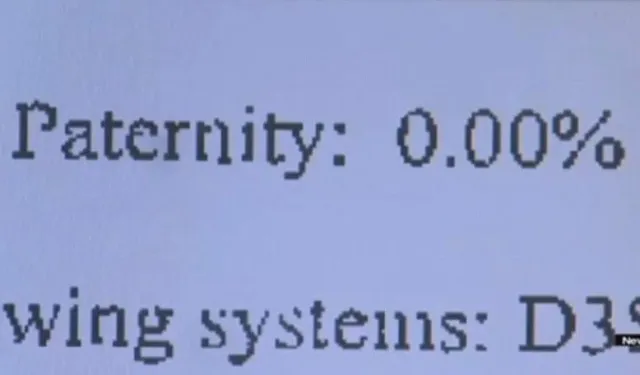A man is compelled to pay child support for a baby that his unfaithful wife conceived with her lover.
In a perplexing legal battle, an Oklahoma man has been ordered to pay child support for a child that is not biologically his.

The situation unfolded due to a delayed paternity test. This highlights a controversial aspect of state law regarding parental responsibilities.
The case of thomas
Thomas, a resident of Oklahoma, has found himself in a distressing predicament.
He is compelled to provide child support for a child conceived by his estranged wife and her lover.
This unusual case has attracted significant attention.

Thomas, who has chosen to withhold his last name, learned that he was ordered to pay child support.
This happened despite being proven not to be the biological father.
Thomas and his ex-wife married after she became pregnant during high school.
At that time, Thomas had no reason to doubt the paternity of the child.
However, as their marriage deteriorated when the child turned three, Thomas decided to seek a paternity test.
The results from two separate tests confirmed that he was not the biological father.
Legal complications

Unfortunately for Thomas, Oklahoma law stipulates that paternity must be questioned within two years of the child’s birth.
Thomas requested the paternity test after the designated period. As a result, he was legally recognized as the child’s father.
Despite the test results proving otherwise, the law required him to continue paying child support.
“I wish I was telling a lie,” Thomas remarked. “I wish it wasn’t the truth, but it is.” He expressed frustration over the legal system, stating that many people he speaks with are incredulous about the court’s decision.
Court ruling and financial impact
Initially, a judge ruled in favor of Thomas.

Upon reviewing the law, the judge reversed the decision. Thomas was then mandated to pay $500 per month in child support.
Additionally, Thomas was ordered to pay $15,000 in back support, plus interest.
Thomas is now working to amend the law to consider DNA evidence in determining child support obligations.
He argues that biological paternity should be a primary factor rather than the timing of the paternity test.
“At this point, there’s really nothing I can do to get out of the $15,000 or the child support,” he conceded. “It’s done, it’s the law.”
Under current Oklahoma law, the child’s biological parents could potentially absolve Thomas of his financial responsibilities. This would be possible if they agree to do so.
However, without their consent, Thomas faces the prospect of paying child support for the next 15 years.

Thomas’s case underscores the challenges faced by individuals entangled in legal disputes over parental responsibilities and paternity.
As he continues to push for legal reform, his situation remains a poignant example of outdated laws.
These laws can lead to unjust outcomes.